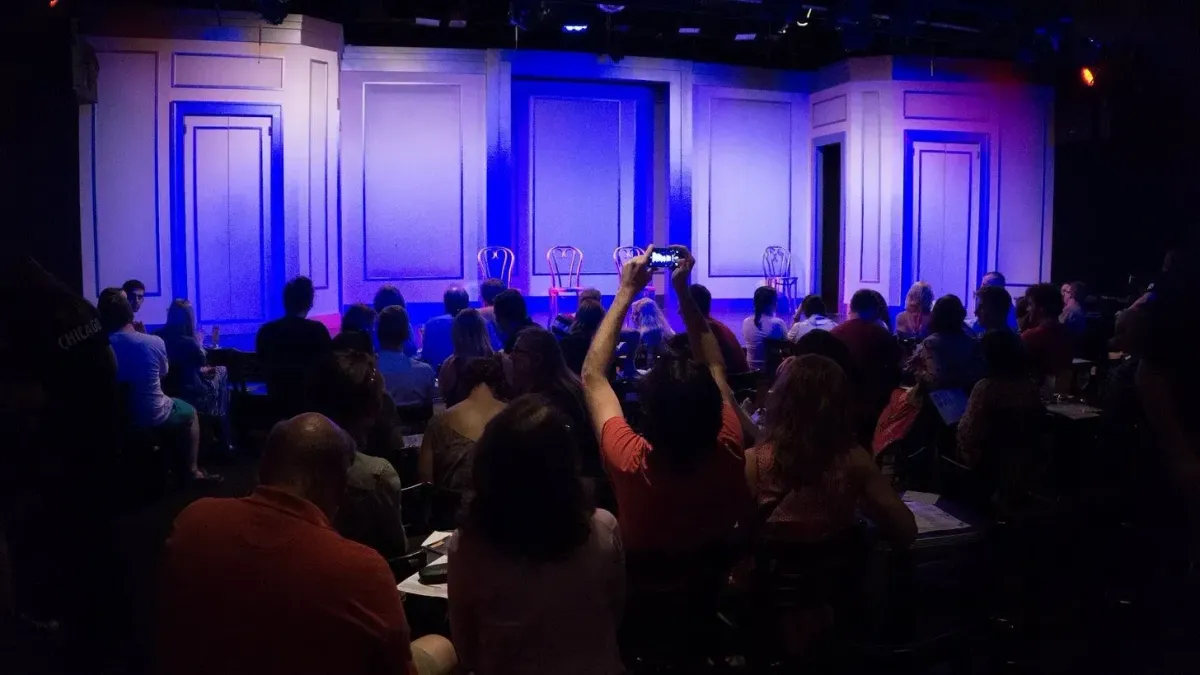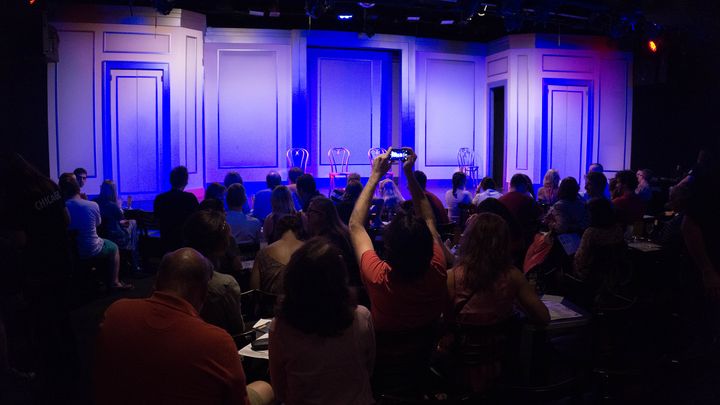The Guru
Improv problem's are baked into improv's past.

While I was writing this week's newsletter about Comedy House New Orleans and its predecessor The New Movement, I was reading the comedian Jeff Griggs' memoir Guru: My Days with Del Close. Griggs was a student and performer at iO Chicago (then ImprovOlympic) in the late 90s when Charna Halpern offered him free classes if he took on some personal assistant work for her business partner, Del Close. Close was ill with emphysema, which greatly limited his mobility, and was also just generally unable to take care of himself, rarely showering or cleaning. Over time, Griggs' job evolved from "driving Del around" to "being one of Del's only friends and confidantes." Today he's a director and faculty member at Second City and a teacher in Columbia College Chicago's Comedy Studies program.
There is no denying Del Close's critical role in the history of comedy. He was one of the first to recognize improv as an art form in its own right—not just a tool for developing scripted material—and he dedicated his life to evangelizing it. As a director at Second City and longtime teacher/director at iO, he discovered and/or trained the likes of Bill Murray, Joe Belushi, John Candy, Gilda Radner, Chris Farley, Harold Ramis, Stephen Colbert, Tina Fey, and the UCB4. All three of New York's major improv theaters and schools—UCB, the Peoples Improv Theater, and the Magnet—as well as the Pack Theater in Los Angeles were founded by his students. (The Groundlings was founded by one of his collaborators in the San Francisco comedy group The Committee, where he developed the Harold.) Many of his other students went on to become teachers and directors at Second City, iO, and other theaters. Through them and their own students, Close's principles continue to shape the practice of improv.
He was also an abusive leader who sexually harassed and bullied his students and workers. Guru makes no effort to hide this, only to frame it as an awkward but understandable facet of a genius's complex personality. In one chapter, Griggs describes Close telling one of his classmates that she's so unfunny she should "sew her vagina shut" so she doesn't have any children. ("To Del's credit, she was really bad.") Close's vitriolic responses to bad improv—sometimes he might yell at you; other times he might give you a refund on the spot and send you out the door—at one point led to his entire class dropping out, save for Griggs. Close didn't learn his students' names, Griggs writes, instead referring to them in more superficial terms: "The Fat Chick," "The Little Greek Guy," "The Tall Blonde Chick," "The Anorexic Bald Guy," "The Lesbian Lawyer," "The Dumb Cunt," "The Fat Dumb Cunt." Even though he worked closely with iO's academic director, Jason Chin, Close nonetheless referred to him as "The Chinaman."
In another chapter, Griggs accompanies Close to an improv workshop he was hired to run at a local college. There Close takes a liking to a young woman in the class and pairs Griggs with her for a bunch of scenes, then for the class's public performance that evening. The two have chemistry onstage, and Close privately encourages Griggs to sleep with the student. Griggs demurs, telling Close (who won't shut up about how attractive he finds her) it wouldn't be appropriate. At the end of the chapter, Griggs kisses the student and invites her to visit him in Chicago. At this point I will mention that Close openly believed women aren't funny; Griggs was hopeful he might evolve in this belief, as he had evolved in his earlier belief that Black people aren't funny.
I'm not trying to cancel a dead man here, but I do think these stories emphasize a point we've discussed a few times before. The abuses we see at improv organizations like The New Movement and so many others are endemic to improv. It is no great mystery why theater after theater has issues with sexual misconduct, racism, exploitation, lackadaisical leadership, teachers using their classes as their personal dating pools, and the general blurring of personal-professional boundaries. Their practice was designed not very long ago by someone who embraced all of these things. His students went on to run other theater-schools in his image. They still regard him with cultish reverence. UCB, which turned Del Close's teachings into Hollywood's most respected scam, and which itself set the model for so many other improv theaters, threw an annual festival in his honor for 21 years. Cause, meet effect.
As it goes in improv, so it goes in standup. The entire business of comedy was built around cults of personality, with most popular histories of the form written by the cult leaders' handpicked favorites. Some structural problems are impossibly difficult to wrap one's head around, but not comedy's. The industry is the way it is because of a few people whose status in its pantheon has never seriously been questioned. It once again seems to me that a future free of these problems depends on a serious reexamination of comedy's past.
Header image via Jeffrey Zeldman/Flickr.


